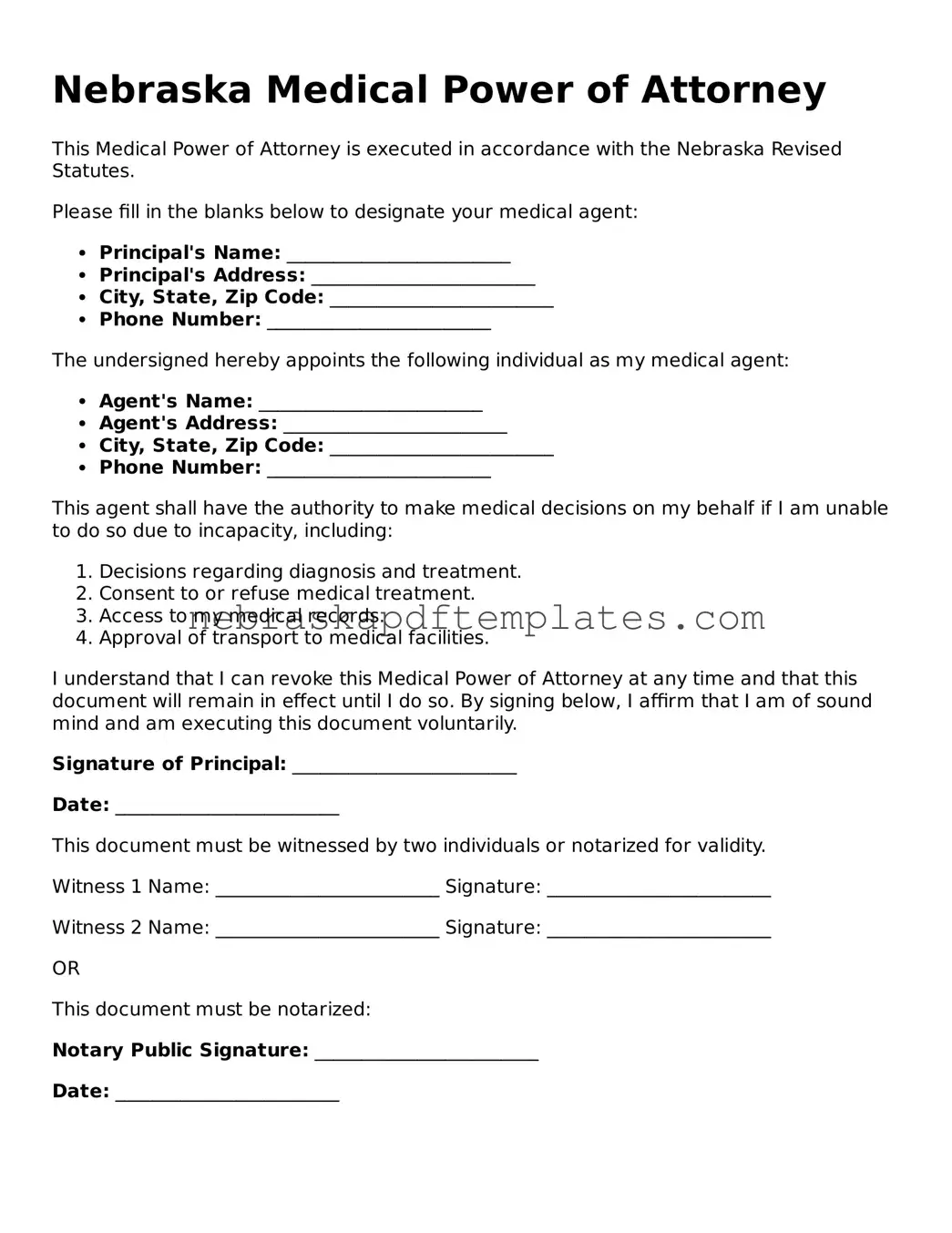What is a Medical Power of Attorney in Nebraska?
A Medical Power of Attorney is a legal document that allows you to appoint someone you trust to make healthcare decisions on your behalf if you become unable to do so. This can include decisions about medical treatments, procedures, and end-of-life care. In Nebraska, this document ensures that your healthcare preferences are honored even when you cannot communicate them yourself.
Who can be appointed as my agent?
You can choose anyone to be your agent, as long as they are at least 19 years old and mentally competent. Common choices include family members, close friends, or trusted advisors. It is essential to select someone who understands your values and wishes regarding medical care.
Do I need a lawyer to create a Medical Power of Attorney in Nebraska?
No, you do not need a lawyer to create a Medical Power of Attorney in Nebraska. However, it is advisable to seek legal advice if you have specific concerns or complex wishes. Many resources are available to help you understand the form and ensure it accurately reflects your intentions.
To complete the Medical Power of Attorney form, follow these steps:
-
Download the form from a reliable source or obtain it from a healthcare provider.
-
Fill in your personal information, including your name and address.
-
Designate your agent by providing their name and contact information.
-
Clearly outline any specific instructions or limitations regarding your medical care.
-
Sign and date the document in the presence of a notary public or two witnesses, as required by Nebraska law.
Can I revoke my Medical Power of Attorney?
Yes, you can revoke your Medical Power of Attorney at any time. To do this, you should create a written revocation document and notify your agent and any healthcare providers involved in your care. It’s also a good idea to destroy any copies of the original Medical Power of Attorney to prevent confusion.
What happens if I don’t have a Medical Power of Attorney?
If you do not have a Medical Power of Attorney and become unable to make healthcare decisions, the state will determine who can make those decisions on your behalf. This may lead to delays in receiving care or decisions being made that do not align with your wishes. Having a Medical Power of Attorney ensures that your preferences are respected.
Is my Medical Power of Attorney valid in other states?
A Medical Power of Attorney created in Nebraska is generally recognized in other states, but laws can vary. It’s advisable to check the specific requirements of the state where you may be receiving care. If you travel frequently or have residences in multiple states, consider having a form that complies with the laws of each state.
What if my agent cannot or will not act on my behalf?
If your appointed agent is unable or unwilling to make decisions for you, the next person in line, as defined by Nebraska law, may step in. This could be a family member or another trusted individual. It is wise to name an alternate agent in your Medical Power of Attorney to ensure that someone is always available to advocate for your healthcare wishes.
Can I include specific medical treatment preferences in my Medical Power of Attorney?
Yes, you can include specific medical treatment preferences in your Medical Power of Attorney. This could involve your choices regarding life-sustaining treatments, organ donation, or other healthcare interventions. Clearly stating your wishes helps guide your agent in making decisions that align with your values and beliefs.

